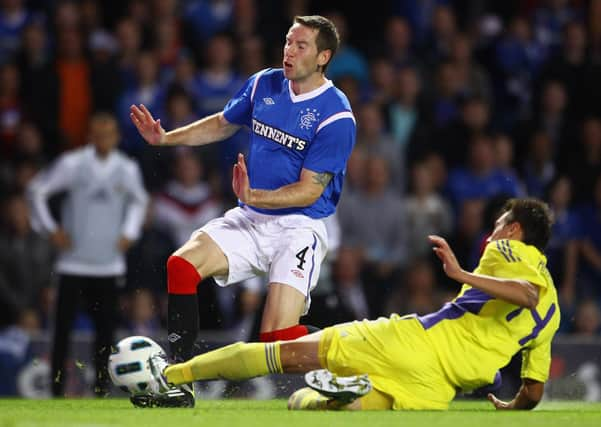SFA close case against Rangers over 2011 Uefa licence


The SFA has announced it will not refer a notice of complaint against Rangers over the club’s 2011-12 Uefa licence to the Court of Arbitration for Sport.
It is understood that, according to rules over licensing breaches as they stood in 2018, Rangers would only be liable for a five-figure fine if CAS found against them.
Advertisement
Hide AdAdvertisement
Hide AdIn contrast, legal costs could run to several hundred thousand pounds and the SFA has put aside one of the longest-running contentious issues in the Scottish game between supporters of Glasgow big two.
During a seven-year campaign by the online Celtic support community, their regular agm demands for their club to push the issue more forcefully became known as Resolution 12 – a reference to the number given to the resolution when first brought forward at a Celtic agm.
The notice of complaint was raised against the Ibrox club in 2018 over their alleged failure to disclose a £4 million tax liability that would have resulted in them failing to meet the European governing body’s licensing criteria for the following season. That would have prevented them being named as Scotland representatives for the Champions League qualifying phase the following season, and put Celtic in position to take their place.
The SFA compliance officer’s issue of the notice of complaint in 2018 resulted in a judicial panel being convened. However, this panel concluded that jurisdiction on this matter lay with CAS.
It did so as a result of legal representation made by Rangers, which stated the matter had to be settled by CAS as a consequence of the five-way-agreement signed in 2012 between the SFA, SPL, SFL and Rangers following the Ibrox club’s liquidation, which allowed them to enter Scotland’s lowest senior tier in 2012.
The statement from the SFA read: “A Judicial Panel convened to consider a Notice of Complaint raised against Rangers FC in 2018 in relation to alleged new evidence regarding representations received prior to the awarding of a European licence for season 2011/12 - determined at a preliminary hearing that it did not have jurisdiction t–o determine the matter. Instead, it concluded that jurisdiction lay with the Court of Arbitration for Sport.
“Following consideration of the implications of such a referral, including legal opinion, it was the board’s unanimous position that this matter should not be referred to CAS. The Scottish FA now considers the matter to be closed.”
A message from the Editor:
Thank you for reading this story on our website. While I have your attention, I also have an important request to make of you.
Advertisement
Hide AdAdvertisement
Hide AdWith the coronavirus lockdown having a major impact on many of our advertisers - and consequently the revenue we receive - we are more reliant than ever on you taking out a digital subscription.
Subscribe to scotsman.com and enjoy unlimited access to Scottish news and information online and on our app. With a digital subscription, you can read more than 5 articles, see fewer ads, enjoy faster load times, and get access to exclusive newsletters and content. Visit https://www.scotsman.com/subscriptions now to sign up.
Our journalism costs money and we rely on advertising, print and digital revenues to help to support them. By supporting us, we are able to support you in providing trusted, fact-checked content for this website.
Joy Yates
Editorial Director
Comments
Want to join the conversation? Please or to comment on this article.